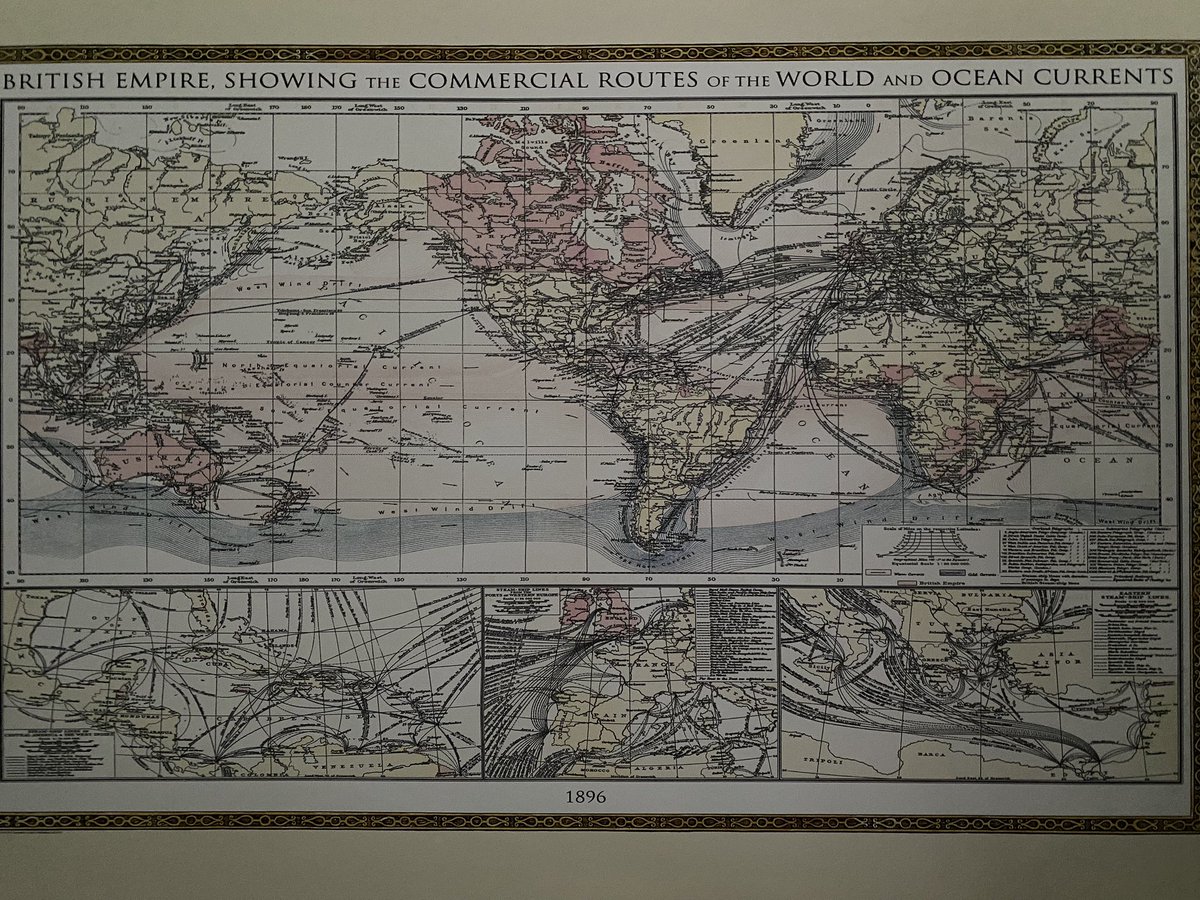🧵1/13
Enough. The @Telegraph has gone too far with its condemnation of teaching about colonial history. There's at least three brainless statements from this latest piece of concocted outrage (& more to come):
archive.ph/aL4Op
Enough. The @Telegraph has gone too far with its condemnation of teaching about colonial history. There's at least three brainless statements from this latest piece of concocted outrage (& more to come):
archive.ph/aL4Op
2/13
1. @Craig_Simpson_'s idea that the "teaching of colonialism as invading and exploiting" is shocking.
The Oxford definition of colonialism is:
1. @Craig_Simpson_'s idea that the "teaching of colonialism as invading and exploiting" is shocking.
The Oxford definition of colonialism is:
3/13
"the policy or practice of acquiring full or partial political control over another country, occupying it with settlers, and exploiting it economically."
"the policy or practice of acquiring full or partial political control over another country, occupying it with settlers, and exploiting it economically."
4/13
How on Earth are we supposed to teach it as anything other than “invading and exploiting”?
It would be like teaching the Tudors without executions.
How on Earth are we supposed to teach it as anything other than “invading and exploiting”?
It would be like teaching the Tudors without executions.
5/13
2. @History_Reclaim's Robert Tombs claiming that it would be wrong for teachers to "celebrate" the Oba of Benin because he traded in enslaved people. First, the resource being criticised doesn't say that the various Obas of Benin should be 'celebrated'.
2. @History_Reclaim's Robert Tombs claiming that it would be wrong for teachers to "celebrate" the Oba of Benin because he traded in enslaved people. First, the resource being criticised doesn't say that the various Obas of Benin should be 'celebrated'.
6/13
It says that their 'contributions and achievements' should be recognised. Those achievements include the Benin Bronzes, which must have some world historical value or @History_Reclaim would not be fighting so hard to prevent their repatriation from the British Museum.
It says that their 'contributions and achievements' should be recognised. Those achievements include the Benin Bronzes, which must have some world historical value or @History_Reclaim would not be fighting so hard to prevent their repatriation from the British Museum.
7/13
Tombs also appears momentarily to have forgotten who was the biggest slave trader of all for much of the C18. Britons. Better not teach about their achievements then, eh?
Tombs also appears momentarily to have forgotten who was the biggest slave trader of all for much of the C18. Britons. Better not teach about their achievements then, eh?
8/13
3. I don't often uses GIFs. But this requires it. Tombs declares that describing Winston Churchill as a racist is "a baseless accusation"!
3. I don't often uses GIFs. But this requires it. Tombs declares that describing Winston Churchill as a racist is "a baseless accusation"!
9/13
He may also have been a great wartime leader, but throughout his whole adult life Churchill was unequivocally, unashamedly racist. Even Andrew Roberts once admitted that Churchill was a white supremacist, but that was before Roberts became a member of @History_Reclaim and had to disown that knowledge as 'anti-British'.
He may also have been a great wartime leader, but throughout his whole adult life Churchill was unequivocally, unashamedly racist. Even Andrew Roberts once admitted that Churchill was a white supremacist, but that was before Roberts became a member of @History_Reclaim and had to disown that knowledge as 'anti-British'.
10/13
In 1921 Churchill described East African Indians as "a vulgar class of coolies" who "could not yet be allowed the same political rights as white men".
1922: "opinion would change soon as to the expediency of granting democratic institutions to backward races who had no capacity for self-government’" ...
In 1921 Churchill described East African Indians as "a vulgar class of coolies" who "could not yet be allowed the same political rights as white men".
1922: "opinion would change soon as to the expediency of granting democratic institutions to backward races who had no capacity for self-government’" ...
11/13
1942: "I hate Indians. They are a beastly people with a beastly religion".
1952: "When you learn to think of a race as inferior beings it is difficult to get rid of that way of thinking"...
1942: "I hate Indians. They are a beastly people with a beastly religion".
1952: "When you learn to think of a race as inferior beings it is difficult to get rid of that way of thinking"...
12/13
1954: "I hate people with slit eyes and pigtails" and he "did not really think that black people were as capable or as efficient as white people".
1955: "Keep Britain White would be a good slogan".
1954: "I hate people with slit eyes and pigtails" and he "did not really think that black people were as capable or as efficient as white people".
1955: "Keep Britain White would be a good slogan".
13/13
But oh no, according to Tombs, he couldn't possibly be described as a racist.
Just pack it in now will you @Craig_Simpson_ and @Telegraph? You're making fools of yourselves.
But oh no, according to Tombs, he couldn't possibly be described as a racist.
Just pack it in now will you @Craig_Simpson_ and @Telegraph? You're making fools of yourselves.
• • •
Missing some Tweet in this thread? You can try to
force a refresh














